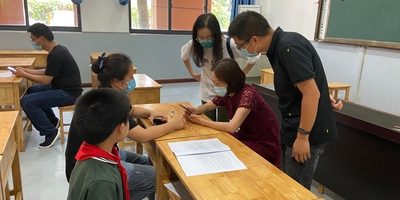
School-based education programme to reduce salt intake in children and their families (School-EduSalt)
This project aims to determine whether an education programme targeted at school children can lower salt intake in children and their families.
Methods
A cluster randomised controlled trial in Changzhi, Shanxi province. A total of 28 primary schools with 280 children aged ≈11 years will be recruited into the study. Additionally, 560 adult family members of the participating children will be recruited (ie. two adults per child).
In baseline assessment, two 24 hour urine collections (for the measurements of sodium, potassium, and creatinine), measurements of blood pressure, height and weight circumference, as well as completing a simple questionnaire about participants’ knowledge on salt and a questionnaire on quality of life and EQ5D.
After that, schools will be randomised to either intervention (14 schools with 140 children and 280 adults) or control group (14 schools with 140 children and 280 adults). For the intervention group, children will be educated on how to reduce salt intake. They will then be empowered to deliver the salt reduction message home to their families. In particular, children need to persuade the person who does the cooking and prepares food for the whole family, to reduce the amount of salt used at home.
The duration of the intervention is one school term (≈4.5 months). At the end of the trial, all measurements made at baseline will be repeated. The primary outcome is the difference between the intervention and control group in the change in 24 hour urinary sodium. The secondary outcome is the difference between the intervention and control group in the change of blood pressure.
Status
A Trial Steering Committee meeting has been held in Beijing on 19 - 21 March 2013. A feasibility study for intervention method and materials have been implemented on 1 April 2013. Baseline survey has been completed early in July.









